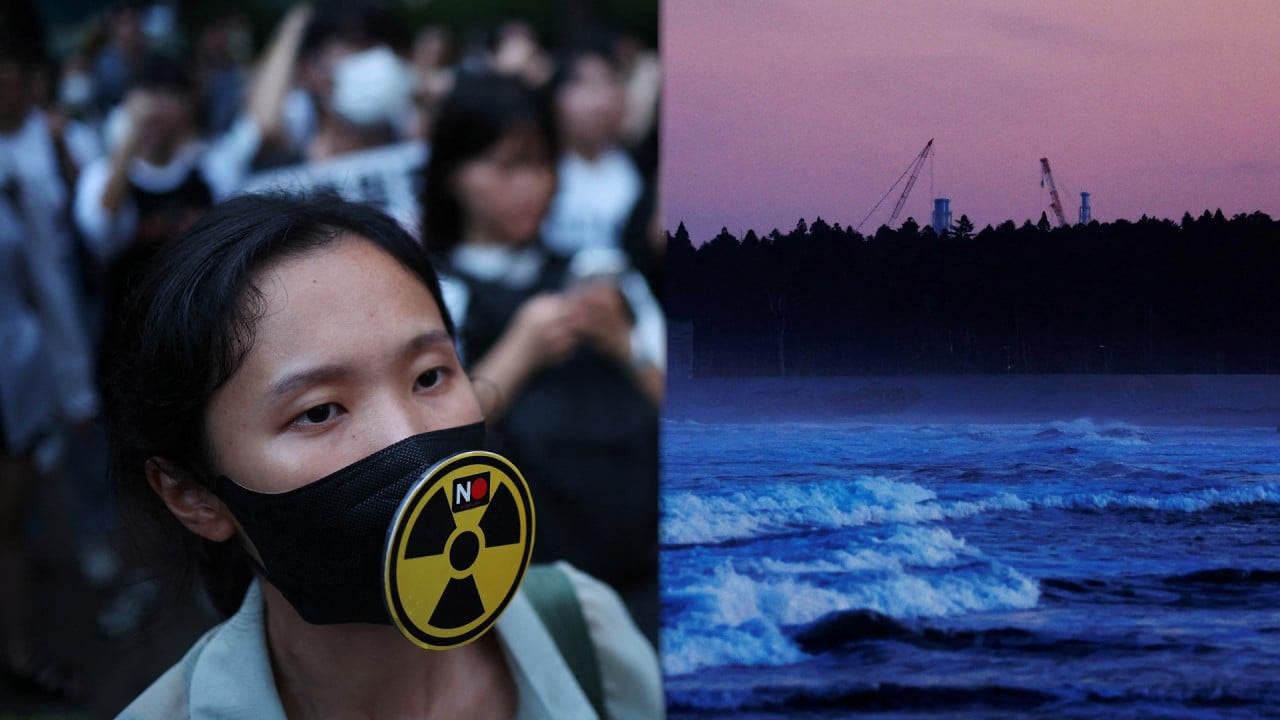
Fukushima water release: why China’s ban on Japanese seafood could backfire
- ‘Many people won’t eat seafood’, industry insider says of Chinese consumers, in ‘dangerous sign for the industry’
- Others say that if Beijing really wanted to make a point, it would go after imports of more critically important trade items such as machinery, circuits and cars from Japan
China’s decision to ban Japanese aquatic products – following the latter’s controversial discharge of Fukushima nuclear waste water on Thursday – could backfire, analysts say, pointing to potential impacts on China’s own seafood sector.
“Clearly, Beijing is making its displeasure very visible with the ban, even if the effect on Japan is not known or knowable at this point. Some of the response from China seems tied to their existing suspicions toward Japan,” said Chong Ja Ian, an associate professor of political science at the National University of Singapore.
He also noted how Beijing did not seem to acknowledge that the waste-water release had been certified by the International Atomic Energy Agency.
“The trade relationship – especially trade in goods – remains important, but Japan is diversifying away from the Chinese market for commercial and risk-management reasons, even as China focuses more on domestic production and consumption,” he said. “Both China and Japan may be less key for each other over time.”
However, China’s banning of seafood imports is not seen as a deeply impactful measure against Japan.
“At present, I am not sure that aquaculture features that prominently in Sino-Japan trade,” Chong said. “If Beijing were serious about its opposition, it could send a more costly signal by reducing or limiting the import of machinery, circuits and cars from Japan. That would hurt Japan more, and at greater expense to the Chinese economy and consumers.
Despite being the largest destination for Japanese seafood, China sources most aquatic products from Ecuador, followed by Russia, Vietnam and India, according to Chinese government data.
The value of overall trade between China and Japan fell by 3.7 per cent to US$357.4 billion last year, according to customs figures. And the January-July value dropped 12 per cent from a year earlier to US$183.3 billion.
Japan is China’s fifth-largest trade partner but accounts for just a small portion of its total seafood imports, considering its huge demand.
Chinese industry insiders are concerned that the waste-water release and ban do not bode well for seafood consumption.
Public willingness to consume aquatic products may be affected
Even though there has not been any action from China to assess whether the waste water is safe “from a scientific point of view”, the move could strike a blow to broader seafood consumption, according to a staff member with the China Aquatic Products Processing and Marketing Alliance, who declined to be named due to the sensitivity of the matter.
“It will definitely have an impact on the fishery and aquaculture industry. Some domestic companies will be affected as well,” he said. “According to what I’ve heard … many people won’t eat seafood, at least in the short term. It’s a dangerous sign for the industry if such a mentality were to be widespread.”
BRIC Agricultural Information Technology, a consulting firm based in Suzhou, west of Shanghai, predicted a far-reaching impact on China’s fishery and aquaculture sector, in a research note on Thursday.
“Public willingness to consume aquatic products may be affected, traffic in seafood markets in coastal cities could drop, while sales of such products will slump, along with price cuts,” it said.
Hong Kong Japanese say country’s seafood is safe, despite radioactive discharge
China received 1.937 billion yuan (US$267 million) worth of aquatic products from Japan between January and July, according to China customs figures. In July, shipments from Japan were worth 235 million yuan, down by a third from the previous month, amid concerns over the safety of the food.
Professor Wang Yamin, from the Marine College of Shandong University in Weihai, Shandong province, said that the waste water might reach Chinese waters to some extent, but it should not be significant because of direction of currents in the North Pacific Ocean.
“The [circulating ocean surface current] near Fukushima moves clockwise, and the water goes to the northeast, in the direction of North America. There won’t be big impact in the near future,” he said.



